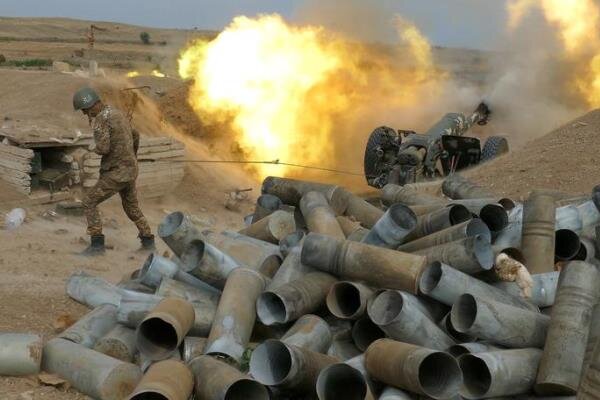Recently, the Republic of Azerbaijan has carried out several airstrikes in Karabakh by violating the ceasefire. This is while Russia, which is known as the main guarantor of the ceasefire in the Karabakh war between the Republic of Azerbaijan and Armenia, is engaged in the Ukraine war on the one hand, and according to many news sources, most of the Russian soldiers who had been stationed to guarantee the ceasefire had left the region and been sent to the war in Ukraine.
Under such circumstances, it was not beyond expectation for Baku to take advantage of Russia’s preoccupation with Ukraine and take action to both liberate more geography of Karabakh and fulfill its desire to occupy Syunik Province.
In case of occupation of Syunik Province, both the Republic of Azerbaijan and Turkey will have access to the transit hub of goods and energy from East Asia, Central Asia and the Caspian Sea basin towards Europe.
Turkey, on the other hand, established a sea line from Baku to Almaty, Kazakhstan, and from there to China, a line of countries in Turkey’s periphery. In fact, Ankara wanted Iran and Russia to have the least presence and benefit from the transit of China and Europe to each other.
In the Karabakh crisis, Turkey is one of the influential countries that has made mistakes in the meantime. In fact, if we look at the Karabakh war in 2020 and the events that are taking place in the South Caucasus region, we find that those were for the geopolitical change of the region and for the economic goals of Turkey.
As a rule, Russia, as the guarantor of the ceasefire, which in 2020 undertook the responsibility of guaranteeing the ceasefire for 5 years in the Karabakh war, is obliged to monitor the provisions of the ceasefire. At the same time, Russia’s focus on Ukraine will reduce its focus on other regions, and such lack of focus by Russia has tempted and provoked Baku and Ankara.
At the same time, it is not unlikely that the Zionist regime also has seen the atmosphere as appropriate to put pressure on Iran according to the traditional strategy of Ben-Gurion, because any insecurity and instability in Iran’s periphery is in the interests of rivals and regional and trans-regional enemies of the Islamic Republic.
Russia is likely to meet some of Armenia’s expectations in the conflict; however, it must be admitted that actions taken in the Karabakh war in 2020 and the attack on Armenia did not meet with serious opposition of Moscow; Russia’s reason was Pashinyan’s Westernized and excessive inclination towards the United States and the European Union.
The russians with an aim of punishing Armenia also gave the opportunity to the Turkish-axis abusers. This Turkish axis is also trying now to implement its geo-economic goals and minimize the interests of Tehran and Moscow in this region.










0 Comments